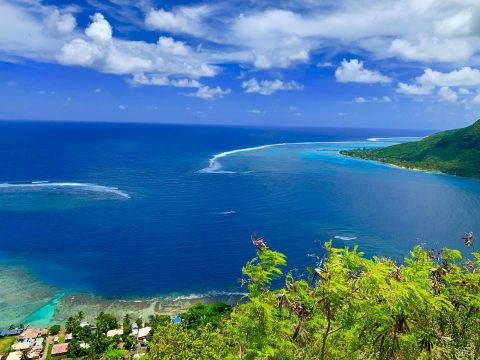The emancipation of leisure travel
2021-01-26What strange times we’re living in. Politics: fraught. Public health: fraught. Economy: fraught.
Travel industry: Preparing for liftoff.
Despite rising unemployment, two-realities politics and 400,000 U.S. victims of the pandemic, travel agency consortia are advising members to use newly available PPP money to staff up for the long-awaited emancipation of leisure travel.
Some consumers who didn’t vacation last year are telling travel advisors they’ll be adding their unspent 2020 travel budgets to their planned 2021 spend. Not since World War II have Americans felt so constrained and contained as they have these past nine months.
How can our feelings of constriction be described?
Pent-up demand? A bit academic.
Cabin fever? Retro hyperbole.
Temporary insanity? Perhaps.
That people will travel does not seem to be in doubt but, nonetheless, questions remain: Will the travel experience be improved? Will it meet elevated expectations? Will lingering restrictions reduce joy? Will those fraught aspects of modern society — politics, economic uncertainty, health concerns — intrude? Perhaps.
Will the travel experience be improved? Prior to the pandemic, perhaps the greatest threat to the travel industry was overtourism. As unpleasant to the traveler as to the host, it was nonetheless on the rise for years simply because it was so profitable. To address this serious problem, the industry responded with even more profitable workarounds, such as private, after-hours access to popular attractions. No one could resist adding to the tourism density of Venice, Barcelona or Dubrovnik, Croatia, because demand remained high and, well, everyone else was doing it.
Have suppliers and destinations been working together to solve overtourism? Some tour operators have focused on “regenerative travel” and other alternative approaches, but most suppliers have been in survival mode and directing energy to creating business, not looking down the road for alternatives to too-much business. In times of challenge, tour operators are much more likely to rely on tried-and-true destinations than making the effort to open and promote lesser-known sites.
But coming out of the pandemic, they may find that the landscape has changed. The citizens of Key West and Hawaii, to name two examples, have reveled in this period of no-tourism, regardless of the economic consequences. Venetians, too, may be willing to trade visitors on their streets for clearer water in their canals.
There is likely a middle ground that will be discovered, but until it is, this reckoning may cause some short-term pain to the industry as the relationship between visitor and host re-calibrates.
Will travel meet elevated expectations? Many travelers will be so glad to return to the road that they may be in a forgiving mood. Inexperienced guides? Charming and authentic! Long check-in lines? Worth the wait! Gardenview versus oceanview? Just glad to smell the fresh salt air!
Others, resentful of a lost year, may feel more entitled than ever and that anything less than a perfect trip is a form of robbery. In the end, it’ll probably be business as usual but more so, in this regard. The chill will stay chill, the demanding will be more demanding. Some things never change.
See also: Will lingering restrictions reduce joy? Setting traveler expectations, in great detail, will be more critical than ever. Travel advisors are expected to benefit from traveler insecurity, and if consumers do turn to advisors rather than booking direct or through an OTA, it will be because they trust advisors to know all that is knowable. They will expect travel advisors to translate the 74 recommendations of the Healthy Sail Panel into plain English and to accurately describe what a cruise with restricted capacity and activity is going to be like. If it’s described accurately, joy is possible. If not, not.
It may be difficult. There are unanswered questions about destinations where the virus may remain untamed. Will India, where unreliable power makes delivering refrigerated vaccines to 1.3 billion people a challenge, fall off the traveler’s map?
Will the fraught aspects of modern society intrude? Economic uncertainty and public health issues will no doubt continue to have a suppressive effect on holiday-making, though they may also act as a governor that makes the initial burst of travel manageable. If everyone who wants to travel could travel simultaneously, everyone’s experience would suffer.
Most potentially worrisome is the polarity of political views and the passions felt by people on either side of the divide. At home, we can choose our preferred news echo chamber, unfriend those we consider unhinged, Zoom with the like-minded and, generally speaking, keep our distance from people we disagree with.
This is, by the way, a terrible way to live. But here we are.
Will your vacation be ruined by the presence of a MAGA hat on your motorcoach? Overhearing the person sitting behind you expressing relief that Biden is president?
My idealistic solution is that, when setting expectations, tell clients to leave America behind when they leave America. They went abroad to experience something new. They will need to lean into that.
Courtesy of Travel Weekly


